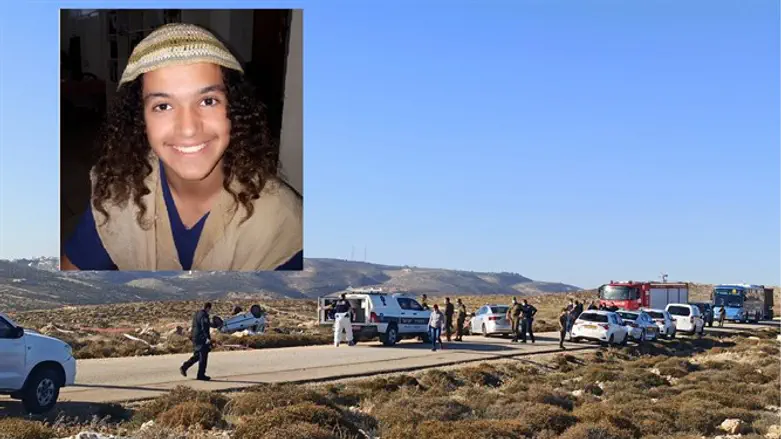
In a letter sent to Israel''s deputy attorney general, lawyers Momi Lemberger and Menashe Yado from the Honenu legal organization, representing the Sandak family, explain their main objections to the investigation into the death of teenager Ahuvia Sandak.
"It is in consideration of an earlier letter of ours, in which Moshe Sa'ada, deputy head of the Internal Affairs department, claimed that Keren Bar-Menachem, head of the Internal Affairs department, was interfering with the investigation, I once again requested that Mrs. Bar-Menachem be completely excluded from this investigation. The deputy attorney general informed me that he had personally appointed her and trusted her completely. Likewise, he had personally appointed the investigative team involved, and that everything that happened would be under his control and deemed his responsibility. This is, in effect, a message that everything is under control, but also means that I am expected to give blind faith to Mrs. Keren Bar Menachem, despite the accusations against her and my own lack of access to the video evidence involved."
"We know that the officers involved were not questioned until Thursday, an unheard-of amount of time for an incidence of manslaughter to go with no interrogation at all. The officers reported to Internal Affairs on the day of the incident itself, but no action was taken. We know that there exists objective evidence to put the case to rest and yet we are expected to rely on trust and the reassurances of the police.
"Additionally, we are in no position to argue, having no objective proof of our own. All we can say for certain is that this investigation is already fraught with failings, for which we intend to hear the explanation before this matter is over.
"We say that someone who takes responsibility for an investigation will, in the end, be responsible for whether or not the findings are credible. At the moment, they are not. There exists evidence that is degrading by the day.
"The day after the incident we issued a letter calling for all information and evidence to be gathered immediately. For example, we know that in the nearby Arab village of Taibeh there are cameras from one of the chicken coops with a line of sight to the area, whose recordings were not collected. Those cameras represent a veritable gold mine of evidence, yet they are untouched. The officers' mobile phones were not collected, nor their call logs accessed. This evidence is 'perishable', and is in growing danger of being destroyed one way or another, yet no steps are taken to collect and preserve it. Internal Affairs should be as interested in this evidence as we are, but instead practice culpable neglect of this evidence in the hopes of only bringing the matter to trial once there is no evidence left against the officers. This is a shortcoming inconsistent with any known police procedure.
"Additionally, the delay in interrogating the officers is itself a serious shortcoming of the investigation. I don't see how the deputy attorney general can say everything is fine when anyone can see that this is a whole parcel of scandals."